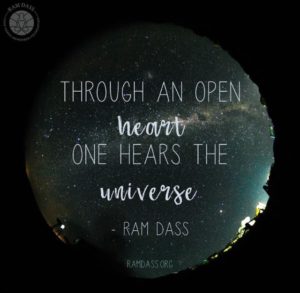hearts
Pope Francis
November 28, 2020Illustration by Najeebah Al-Ghadban; photographs by Getty Images
‘If we are to come out of this crisis less selfish than when we went in, we have to let ourselves be touched by others’ pain.’
‘We need a politics that can integrate and dialogue with the poor, the excluded and the vulnerable, that gives people a say in the decisions that affect their lives.’
‘It is all too easy for some to take an idea—personal freedom—and turn it into an ideology, creating a prism through which they judge everything. | We cannot return to the false securities of the political and economic systems we had before the crisis.’
Pope Francis: A Crisis Reveals What Is in Our Hearts
[Full Piece.]
In this past year of change, my mind and heart have overflowed with people. People I think of and pray for, and sometimes cry with, people with names and faces, people who died without saying goodbye to those they loved, families in difficulty, even going hungry, because there’s no work.
Sometimes, when you think globally, you can be paralyzed: There are so many places of apparently ceaseless conflict; there’s so much suffering and need. I find it helps to focus on concrete situations: You see faces looking for life and love in the reality of each person, of each people. You see hope written in the story of every nation, glorious because it’s a story of daily struggle, of lives broken in self-sacrifice. So rather than overwhelm you, it invites you to ponder and to respond with hope.
These are moments in life that can be ripe for change and conversion. Each of us has had our own “stoppage,” or if we haven’t yet, we will someday: illness, the failure of a marriage or a business, some great disappointment or betrayal. As in the Covid-19 lockdown, those moments generate a tension, a crisis that reveals what is in our hearts.
In every personal “Covid,” so to speak, in every “stoppage,” what is revealed is what needs to change: our lack of internal freedom, the idols we have been serving, the ideologies we have tried to live by, the relationships we have neglected.
When I got really sick at the age of 21, I had my first experience of limit, of pain and loneliness. It changed the way I saw life. For months, I didn’t know who I was or whether I would live or die. The doctors had no idea whether I’d make it either. I remember hugging my mother and saying, “Just tell me if I’m going to die.” I was in the second year of training for the priesthood in the diocesan seminary of Buenos Aires.
I remember the date: Aug. 13, 1957. I got taken to a hospital by a prefect who realized mine was not the kind of flu you treat with aspirin. Straightaway they took a liter and a half of water out of my lungs, and I remained there fighting for my life. The following November they operated to take out the upper right lobe of one of the lungs. I have some sense of how people with Covid-19 feel as they struggle to breathe on a ventilator.
I remember especially two nurses from this time. One was the senior ward matron, a Dominican sister who had been a teacher in Athens before being sent to Buenos Aires. I learned later that following the first examination by the doctor, after he left she told the nurses to double the dose of medication he had prescribed — basically penicillin and streptomycin — because she knew from experience I was dying. Sister Cornelia Caraglio saved my life. Because of her regular contact with sick people, she understood better than the doctor what they needed, and she had the courage to act on her knowledge.
Another nurse, Micaela, did the same when I was in intense pain, secretly prescribing me extra doses of painkillers outside my due times. Cornelia and Micaela are in heaven now, but I’ll always owe them so much. They fought for me to the end, until my eventual recovery. They taught me what it is to use science but also to know when to go beyond it to meet particular needs. And the serious illness I lived through taught me to depend on the goodness and wisdom of others.
This theme of helping others has stayed with me these past months. In lockdown I’ve often gone in prayer to those who sought all means to save the lives of others. So many of the nurses, doctors and caregivers paid that price of love, together with priests, and religious and ordinary people whose vocations were service. We return their love by grieving for them and honoring them.
Pope Francis is the head of the Catholic Church and the bishop of Rome.
Two hearts.
February 2, 2019If you place two living heart cells from different people in a Petrie dish, they will in time find and maintain a third and common beat.
-Molly Vass
Yet we often tire ourselves by fighting how our hearts want to join seldom realizing that both strength and peace come from our hears beating in unison with all that is alive. It feels incredibly uplifting that without even knowing each other, there exists a common beat between all hearts, just waiting to be felt.
It brings to mind the time that the great poet Pablo Neruda, near the end of his life, stopped while traveling at the Lota coal mine in rural Chile. He stood there stunned as a miner, rough and blackened by his work inside the earth, strode straight for Neruda, embraced him, and said, “I have known you a long time, my brother.”
-Mark Nepo
♥
September 1, 2017Showing up; giving our all.
August 14, 2017I began to discover that human maturity comes as we begin to bring out heads and hearts together.
-Humanitarian Jean Vanier


